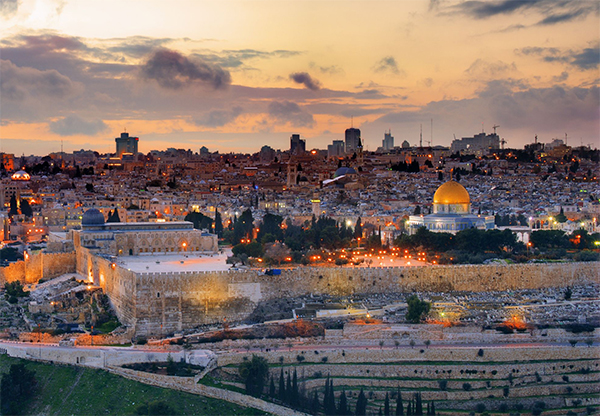The conference on “Tourism and Palestinian Culture in Jerusalem: Unlimited Opportunities” intends to formulate tourism planning in the city as part of the Palestinian strategy to maximize the city’s touristic, social, cultural, and economic impact. The conference aspires to cultivate an academic research methodology that delves into the reservoir of Palestinian Jerusalem tourism competencies. It hopes to promote a coalition of strong academic, social, cultural, and community-based endeavors in the tourism industry, to explore international research in pertinent fields, and to benefit from such efforts and outputs. This can be achieved through the exchange of knowledge on local and international levels. This also requires investing our research potential in the tourism industry and presenting our point of view at an international level.
Conference Objectives:
- To place Palestinian Jerusalem tourism on the global scientific research map
- To build international and local partnerships to influence the development of tourism in a responsible manner
- To pair tourism with various facets of the Palestinian cultural spectrum and expand potential supporting community-based partnerships and initiatives that are capable of contributing and enriching the tourism sector.
Conference Website:
www.JerusalemTourismConference.com
Conference Tracks and Call for Papers
This conference offers a valuable opportunity to cultivate ideas and initiatives that may influence and affect the process of tourism development (economic/social/cultural) in the city. Accordingly, we look forward to a conference that is capable of achieving all its desired objectives, not only by raising these issues locally and globally, but also by impacting the Palestinian tourism industry in the city in a realistic and practical way.
For this purpose we request that all papers be Jerusalem-specific. The scientific committee of the conference has studied and chosen the following two tracks for research and discussion, and hopes that all contributors and participants adhere to the tracks and respond to this call accordingly.
The First Track: The Jerusalem Tourism Industry
Challenges in an Unstable Environment:
This track addresses the challenges that the Jerusalem tourism sector faces in light of the unstable conditions and unpredictable events, which often take place abruptly and dramatically. The Israeli tourism sector continues to overshadow the Palestinian tourism sector in Jerusalem and suffocates its identity and uniqueness. Hence a series of questions arises, and the need for research becomes imperative to form policies and to encourage investments.
- How can tourism stability be fostered in an unstable environment in an effort to address the separation of Jerusalem from its surroundings and natural markets?
- Can we convert the challenges of tourism in a situation of conflict into elements of strength?
- Can we investigate the policies and strategies necessary to establish an independent Palestinian Jerusalem tourism that can formulate the foundation for future development, including the role of community organizations, education, and investments?
- Can we examine the challenges of tourism investments under unstable conditions?
The Second Track: Identity of Jerusalem Tourism-
Self-Search and Product Development
Christian pilgrimage is by far the prevailing mode of tourism that attracts visitors to Jerusalem. The city also enjoys a marginal share of Islamic tourism, a potential area of growth. But Jerusalem is not only a holy place, it also has multiple faces and several community partners that could be engaged in serving tourism development and compounding its benefits by circulating them among a broader range of stakeholders and the public at large.
This track is based on re-exploring the area with its historical, cultural, architectural, and human components through a Palestinian lens with the intention to create a Jerusalem-based Palestinian tourism that needs crystallization, accumulation of knowledge, and development of competent resources and capacities. The following are among the issues that can be processed through studies, publications, deliberations, and discussions:
- Re-defining Jerusalem Tourism: What distinguishes tourism in Jerusalem, and why should tourists stay in Jerusalem and use its local services when they could go to the Israeli market?
- Several Jerusalem distinctive competencies are often absent from the tourism offer:
he cultural scene in the city; diversity with respect to church denominations, ethnic groups, food and drink, and cultural, religious, and artistic activities and festivals.
- Community Tourism: Investigating community and interpretation methods to advance the role of cultural and artistic civil-society organizations, people and their homes and heritage, denominations and ethnic groups, churches and Sufi orders, networking among partners in the tourism sector, and exploring common interests and ways to enhance supporting sectors.
E-mail:
conference@jerusalemtc.org



